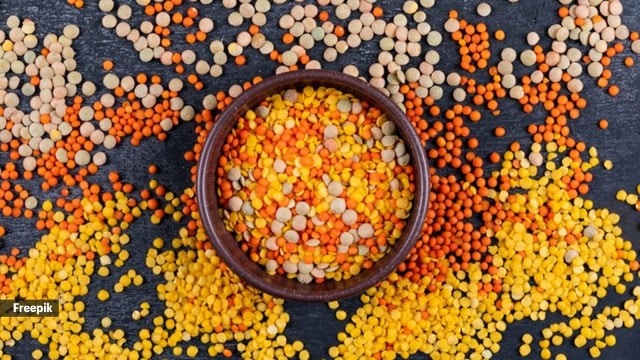📣 For more lifestyle news, click here to join our WhatsApp Channel and also follow us on Instagram
Nutritionist explains why timing, cooking method, and variety matter when adding dals to your diet
“Dals are a powerhouse of complex carbohydrates, plant protein, fibre, vitamins, and minerals,” mentioned the nutritionist
 There is a best time to eat dals based on how they feel in the gut (Source: Freepik)
There is a best time to eat dals based on how they feel in the gut (Source: Freepik)Dals are a staple on most Indian plates, but not everyone knows that the way you cook and eat them can completely change their nutritional impact. Holistic health nutritionist Khushi Chhabra recently explained in an Instagram post that “Dals are a powerhouse of complex carbohydrates, plant protein, fibre, vitamins, and minerals – but did you know the way you cook and eat them makes all the difference?”
She went on to highlight some practical aspects many people overlook when it comes to dals: the best way to consume each variety for maximum nutrition, who should eat them and who might need to avoid them, the right time to eat them, and the recommended daily intake. Chhabra also shared bonus tips for every dal, pointed out the wrong ways of consuming them, and offered simple tricks to make them more digestible and gut-friendly.
Her advice covered a wide range of common dals. She shared that arhar dal is safe, balanced, and best for lunch or in sambhar/rasam, while green whole moong is ideal for weight loss, diabetes, and the elderly, especially when sprouted. Urad dal boosts bone and joint strength but is heavy, so best eaten in moderation, with ginger or hing to aid digestion. Chana dal is fibre-rich and good for diabetics but can cause bloating if undercooked, whereas yellow moong is the lightest, safest, and most gut-friendly, even for children and the sick. Masoor dal is light, iron-rich, and great for weight management, but not ideal for those with kidney stones, while black urad is stamina-boosting but very heavy and should be eaten sparingly.
She even addressed a widespread misconception: “Dals don’t cause bloating, the cooking method does. With the right soaking, spices, and timing, dals can be your healthiest comfort food!”
To better understand how these guidelines translate into everyday eating habits, we spoke with an expert.
Techniques that make dals easier to digest and gut-friendly
Aditi Prabhu, nutritionist and founder at Nutrodynamix, tells indianexpress.com, “Yes, dals can cause bloating, especially if you have preexisting gut issues or sensitivities, or if they are not prepped or cooked properly.”
Some techniques that can make dals easier to digest and gut-friendly include:
- Rinsing the dals thoroughly before use.
- Soaking the dals for 4-6 hours to reduce anti-nutritional factors such as phytates and improve digestibility.
- Cooking them till well done, so that it is easier on the gut.
- Adding the right spices in the right quantities during preparations, such as jeera, hing, ginger, etc., to reduce gases.
- Using fat in moderation while cooking.
View this post on Instagram
Is there really a ‘best time’ to eat dals?
Prabhu says, “Yes, and no, there is a best time to eat dals based on how they feel in the gut, but that timing is individualised. However, the timing does not affect how well our body absorbs the nutrients present in dals. Dals such as tur are heavier to digest and gassy. They are best consumed in the afternoon, and dals like moong, which are lighter, are better consumed at night. Having said that, even the overall dal preparation, quantity consumed, and foods accompanying it also matter a lot.”
Groups of people who should limit or avoid certain dals
Yes, each dal offers a varying nutritional profile. “One should decide which dal to include in their daily diet based on individual tolerance, gut issues, medical history, and overall health requirements. When introducing a new dal, it is best to start small and then increase quantity and frequency,” states Prabhu.
DISCLAIMER: This article is based on information from the public domain and/or the experts we spoke to. Always consult your health practitioner before starting any routine.
📣 For more lifestyle news, click here to join our WhatsApp Channel and also follow us on Instagram


Photos


- 01
- 02
- 03
- 04
- 05























